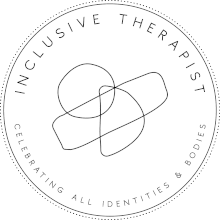North Texas
Religious Trauma Therapy
Grief and reliev can coexist. Process religious trauma while creating new rituals and meaning.
Request a Free 15-Minute Consultation
* By clicking Submit, you permit us to contact you by email, phone, or text. Don’t worry – we won’t send you junk. It’s just to schedule a consultation and see if we can help you!
Religious Trauma Counseling in Plano TX
An Adenda-free Space to Explore
What to Expect
Trauma therapy in Plano, TX – and the growth that can follow – looks different for everyone. We offer care in a secular, LGBTQ+ affirming environment in Plano, TX (just south of Frisco).
Whether you are leaving a high-control religion, processing religious abuse or neglect, deconstructing past programming, or creating new rituals and meaning for your life, this is a space to move at your pace and heal from religious trauma.

Sage Finch Counseling
Healing from Religious Trauma

What is Religious Trauma (in Plain English)?
Religious trauma is the lasting harm that comes from coercive or shaming religious environments—especially where authority, fear, or control override a person’s safety, identity, or freedom to choose.
Religious trauma is more about harmful dynamics than any one particular faith and describes the ongoing effects of that harm. Spiritual abuse is the misuse of power to control or harm another person.
LGBTQ+ Religious Trauma
Being shamed by your religion can be an incredibly painful and isolating experience for an LGBTQ+ person. The scars can be deep and impact multiple areas of your life.
Maybe you had to hide who you really are to avoid being rejected and ostracized. Or maybe you were sent to conversion therapy (which not only “failed” but caused you great harm).
You may struggle with internal conflict between the ideals of your religious upbringing and living your authentic life. Heteronormativity and homophobia can seep in and become internalized, causing feelings of self-disgust or self-hatred.
These feelings are all real and valid. They can have a lasting and profound impact on your life. So, let’s process your religious trauma and get you to a better place.


Women and Religious Trauma
Historically, religion has been a tool to wield power and exert control. This is especially true when it comes to people identifying as women and those assigned female at birth (AFAB).
Did you grow up feeling like women were inferior to men? Were there extreme social and gender norms to keep women in line and reinforce the idea that women are:
- Required to be submissive to men.
- Inferior to men.
- Too emotional/irrational to make decisions.
- Required to dress modestly and behave like a “lady.”
- Not allowed to be in leadership positions.
- Destined to be wives and mothers.
- Must be submissive to men.
- Must never have sex outside of the context of marriage (to a man, of course).
It’s BS, right? Even though you know it’s not based in reality, this early-life programming may impact your life and how you see yourself in relation to others. It’s okay. It takes time to process religious trauma, reframe experiences, make changes, and rebuild (or build) your self esteem. We can help!
Former Members of High-Control Religions
Common high-control behaviors, which can have a lasting impact, include:
- Authoritarian leadership; claims of exclusive truth/salvation
- Isolation from “outsiders”
- Shunning/excommunication
- Conformance to strict codes of behavior
- Control of information, media, friendships, dating, and apparel
- Intrusive oversight of sex, money, and life decisions
- Punitive discipline invoking fear, guilt, or urgency
- Us vs them thinking; pressure to recruit; limited exit options
You may struggle with conflicting feelings of missing the tightly-knit community that provided a sense of belonging and purpose. Maybe you feel lonely and isolated, unwilling to return to your previous life, but not sure how to create connections, community, traditions, and rituals in your new life.
You may need to rebuild your identity and discover who you are. What do you want your life to look like now that you can be yourself? It’s okay if you don’t know. This is a safe space to explore your religious trauma and create a new life and new relationships.


Emotional, Physical, and Sexual Abuse in a Religious Context
Although not common, emotional, physical, and sexual abuse in religious environments (and perpetrated by “religious leaders”) does happen in the context of a religious environment. The trauma of this type of abuse can have serious and long-lasting consequences.
Often victims are not believed because of the reputation of the perpetrator. Other times they are believed, but the “incident” is handled within the organization rather than through the legal system.
Religious Trauma Therapy FAQs
Do I have to leave my religion/community to get help?
How is religious trauma different from other types of trauma?
Great question. Short answer: the nervous system impact can look similar, but religious trauma adds a specific context and set of losses/pressures that change how it’s experienced and how we help.
What’s shared with any trauma
- Hyperarousal or shutdown; anxiety, shame, numbness
- Triggers that feel out of proportion to the moment
- Trouble trusting, setting boundaries, or feeling safe in your body
What’s different about religious trauma?
Source of harm. With religious trauma, the source of harm is wrapped in meaning and authority. The messages come as “truth” from God/leaders/parents, so they can feel unquestionable and self-policing.
Existential threats. Fear of punishment, hell, apocalypse, or being “cut off” for doubting/leaving.
Community loss. Leaving or disagreeing can cost family, friends, childcare, income, or housing—so recovery includes rebuilding social support.
Identity + body shame. Purity-culture rules and anti-LGBTQ+ teachings can target core identity and sexuality.
Information/choice control. Restrictions on media, education, dating, dress, money, or medical decisions—habits of asking permission can linger.
Ongoing pressure. Holidays, invitations, “we’re praying for you,” or debates about belief keep the stress active.
Moral injury/betrayal. Harm by trusted spiritual authorities carries a unique sense of betrayal.
Can I still identify as a member of my community and work on this?
What is religious trauma?
When one partner desires monogamy while the other prefers a non-monogamous arrangement, it presents a complex and sensitive situation that requires careful navigation. In therapy, we provide a neutral and supportive space to explore these differing desires openly and respectfully. The goal is to understand each partner’s perspective, underlying feelings, and needs. We’ll discuss the reasons behind each partner’s preference, exploring their emotional implications and potential impacts on the relationship.
Therapy can help in identifying common ground and possible compromises, or in some cases, it might involve acknowledging and respecting fundamental differences. We work towards finding solutions that honor both partners’ needs and boundaries, whether it’s through negotiation, redefining the relationship structure, or finding other creative solutions. It’s important to approach these conversations with empathy, honesty, and a willingness to listen and understand each other’s viewpoints. The primary focus is on ensuring that both partners feel heard, valued, and that any decision made is consensual and mutually satisfying.
How is religious trauma different from other trauma?
There’s overlap with any trauma—your system may get jumpy or shut down—but religious trauma often adds unique layers. Messages arrive with divine authority, so they can feel unquestionable and self-policing. Existential threats (hell, apocalypse, being “cut off”) raise the stakes. Leaving can cost community, housing, income, or family ties, so recovery includes rebuilding support. Teachings may target core identity (gender, sexuality, body), creating deep shame. Triggers can be unusual—songs, scriptures, holidays, or buildings. Care works best when it centers autonomy, identity repair, practical boundaries, and making new meaning at a pace that feels safe.
What are "high-control" dynamics?
What if I'm not sure it "counts" as trauma?
I'm deconstructing. Can therapy help without pushing me?
You don’t have to convince anyone. If past religious experiences still dictate your choices, erode your confidence, or make daily life feel unsafe or small, that’s enough reason to seek support. Many people minimize their story because “others had it worse” or because the community also gave them good memories. Two things can be true: there were parts you valued, and parts that harmed you. Therapy focuses on the impact now—sleep, relationships, decisions, boundaries—and on what you want different. Labels can be useful, but they’re not required to get relief.
Can I keep certain traditions without the shame?
Yes. You’re welcome to keep what still feels like home—music, rituals, holidays—without the parts that harmed you. We can separate meaning from messaging, adapt practices so they’re consent-based and inclusive, or create new rituals altogether. This might look like celebrating a holiday for the food and connection, reframing a song’s lyrics, or designing a weekly practice that supports your values now. Grief and relief can coexist; keeping the good doesn’t invalidate what you survived. Your life gets to reflect your choices, not just your history.
What if my family keeps pressuring me about _______?
We’ll build a plan that reduces debates and energy loss. A few copy-paste scripts:
- “I’m not discussing theology today. We can talk about work/school/trips.”
- “I love you; my choices are not up for debate.”
- “If the conversation goes there, I’m going to step away. We can try again another time.”
We’ll also set contact levels (how often, where, with whom), prep for holidays, and decide what you’ll share or keep private. Boundaries protect the relationship you can have—not the one someone wishes you had.
What is a secular therapy environment?
COLLIN COUNTY TEXAS
Take the First Step
Frisco LGBTQ+ therapy: Your safe space for healing and growth in Frisco, Texas.
We see clients in-person and online from our Plano, Texas office. Most of our clients come from Collin County and surrounding areas:
|
|
Request a Free 15-Minute Consultation
* By clicking Submit, you permit us to contact you by email, phone, or text. Don’t worry – we won’t send you junk. It’s just to schedule a consultation and see if we can help you!






